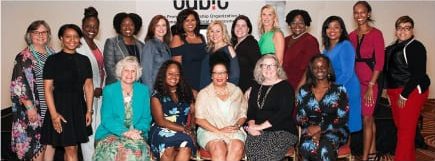Moving Women Forward
Meet Our MembersMoving Women Forward
Meet Our MembersAbout Cable
Cable is the premier leadership organization for women’s professional advancement. As Tennessee’s largest and most established network of diverse professionals, we are committed to connecting women in business to better opportunities.
Our Story1978
Year
Founded
44
Years
in Service
10
Yearly
Events
2
Awards
Programs
Why Join
Cable connects women to important career growth opportunities and learning events at all stages of their career, such as:
- Monthly networking events
- Mentorship program
- Corporate board preparation
- Leadership Academy for professional development
Program Spotlight: Becoming ATHENA
Cable wants to ensure women always have a seat at the table. The Cable Corporate Board Academy is designed to prepare board-ready women to obtain meaningful corporate board roles.
Get InvolvedSign Up for Our Newsletter
Cable Events
Cable presents a world of opportunities to Advocate, Educate, Connect and Celebrate the Achievements and Potential of women.
Learn More
Support Cable
Your donation helps fund a better future for women in business. Cable uses donated funds to improve and expand our programs, and advocate for women in leadership roles.
Donate Now